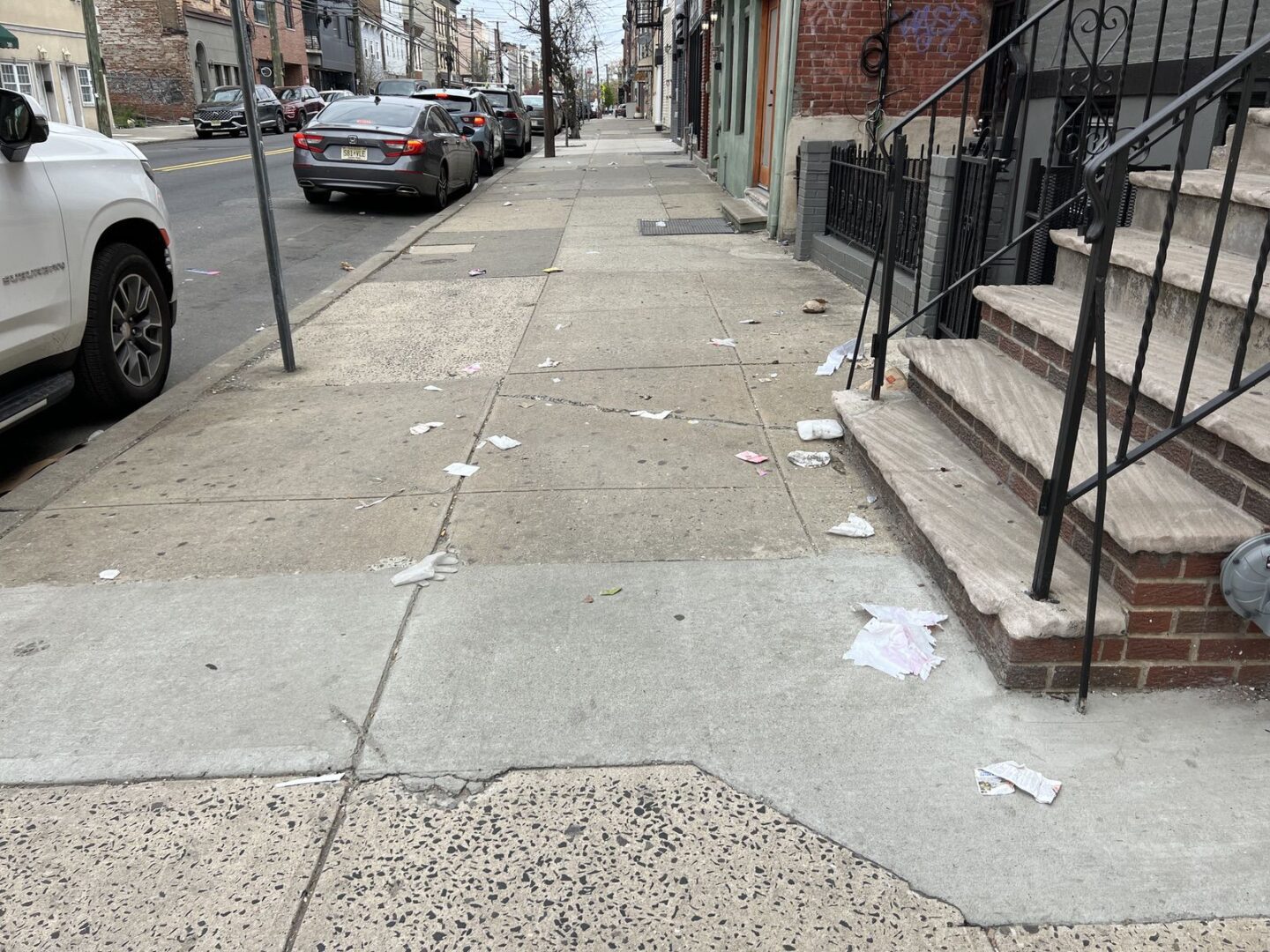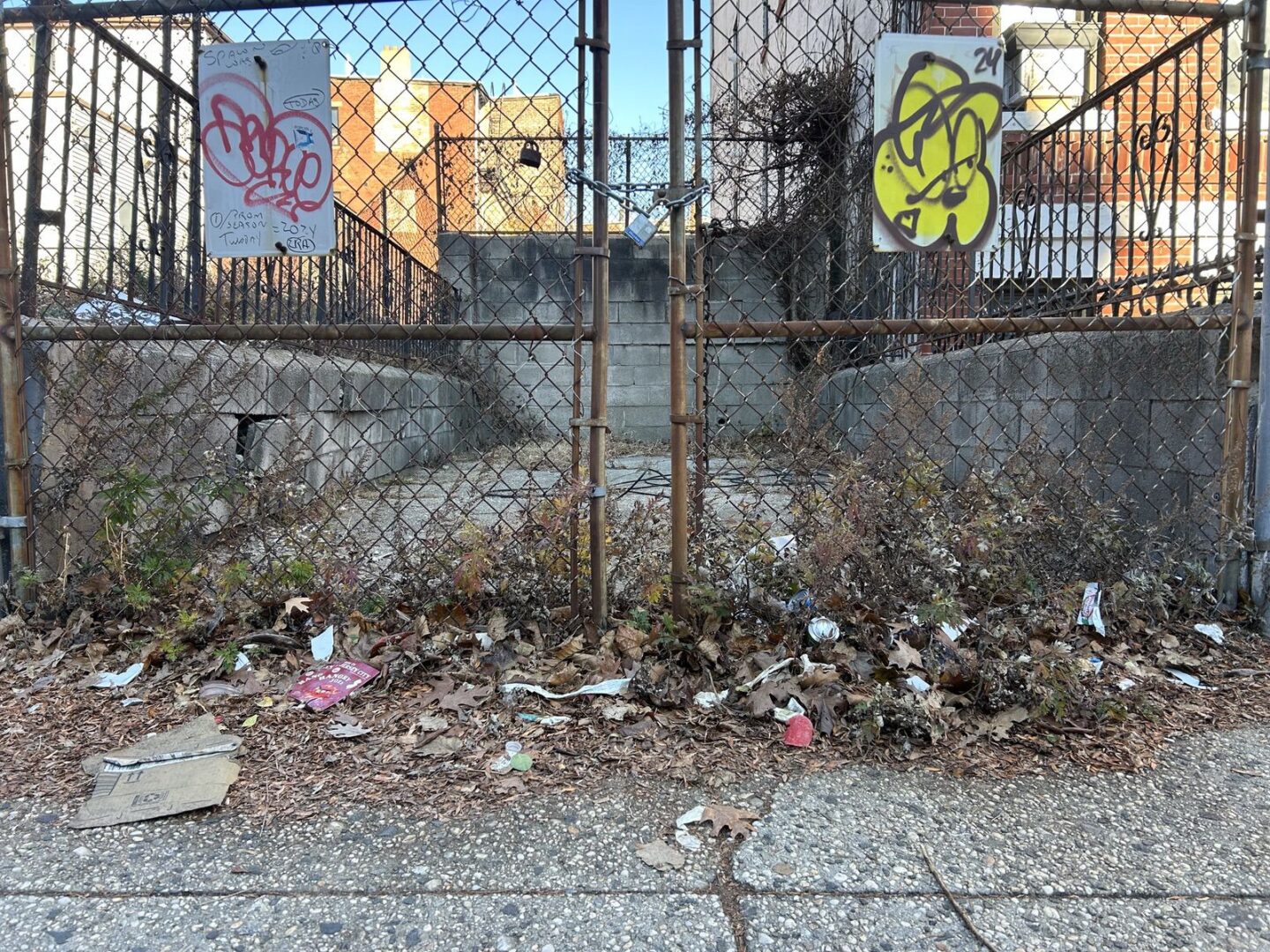
Since publishing our February piece on Jersey City’s litter crisis, we’ve received a number of responses from residents, from frustration to insight to deep concern for the state of our streets. Residents wrote in not just to vent, but to offer concrete observations, solutions, and pleas for accountability.
From overflowing bins and ineffective street sweepers to a growing sense that some neighborhoods are simply ignored, it’s clear this issue touches every corner of the city. Below, we’ve compiled a selection of letters that reveal just how complex – and solvable – the litter problem might be:
“Trash seems to be a big problem for a number of reasons. 1. Because of our lack of community understanding, 2. the sanitation methods, and 3. the solution presented is ineffective.
1. Residents need to bag their garbage. I see frequent full bins without any bagging. This doesn’t help sanitation teams hit the mark as they seem to be on a pretty quick timetable. If your trash isn’t bagged, expect its contents to hit the street.
2. Sanitation teams, as alluded to above, need a better system. They THROW the garbage, and one loose end or a too-full bag means it explodes everywhere. Cleaner cities seem to have those arm-operated trucks that contain the mess a bit better.
3. Street sweeping is not a good solution. Those things just push the garbage all over the place and suck up, what 20% of the contents?”

“I agree that we need to be teaching about NOT littering in schools. Especially since we have a very diverse population. Not everyone knows how garbage is supposed to be dealt with. We need to teach them what is and isn’t acceptable.
We also need to be holding landlords and property owners accountable. You may not have made the mess, but you need to clean it up. As a homeowner, I do.
AND we need to teach and fine people for filling up municipal garbage cans with their household trash bags. Many cans, especially near apartment buildings, are overflowing because the residents are either too ignorant or too lazy to bring their household garbage to the proper place in the building. (I’ve seen it in front 2500 JFK Blvd, also an address I’ve reported many times for not cleaning up the garbage left behind by the garbage pickup folks)
And I have also seen the garbage thrown out of the car window or left on the curb from a parked car. That can only really be addressed through education.
And crack down on bodegas still using/giving out plastic shopping bags. The ban went into affect months ago, but I still see small corner stores giving customers a plastic bag for a single bag of chips…both bags generally discarded on the street within minutes of the purchase.”
“I enjoyed reading your article concerning litter around Journal Sq – and of course, too, noted Boggiano’s lack of comment.
Last year a lot owner illegally cut a curb on Herbert Place – and placed metal barriers across the sidewalk so that cars can park on the sidewalk. The sheer volume of SeeClickFix posts is astounding – yet no one has inspected. The most recent request was closed today with the typical response from Zoning / Warren …
 “
“
“Council President Joyce Watterman echoed that sentiment. “If people would clean up in front of their own property a lot of things would be resolved,” Watterman said. “If they learn to do that then maybe we can use those funds to do other things.”
I was born and still live on Pavonia Avenue. I would like to let Council President Joyce Watterman know that my neighbors and I DO clean up the front of our own property which continues to get garbage blown into it from either the corner lot pictured in your article or the apartment building (486 Pavonia Avenue). I and others have complained for years that they refuse to cover their garbage bins which are usually overflowing with garbage because sometime they just don’t feel like bring the barrels to the curb. When reported and someone goes to fianlly check they never find cause. Isn’t the fact that there are no covers in sight for the barrels cause!
Also I usually have to notify SeeClick of the conditions of that driveway and empty lot on the corner. They are issued a warning and only then would come to clean it up. This has been going on for years. They should be checking their property weekly and maybe if they were fined every time they had to be told they would get it.
It seems like to me that it would be better if the city was to fine the owner of the empty lots or the people who do not properly store secure their garbage bins are required instead of just giving them continuous warnings that really do not stop.”
“Street cleaning machines don’t do anything but blow the garbage around. I’ve seen street cleaners in North Arlington with a smaller driven vacuum machine and they ride along the street curbs vacuuming up the trash. I mentioned it years ago and my reply from the mayor was that JC is too big for that kind of function. No it’s not. Yes it’s much bigger but the city is probably spending tons of money on equipment and manpower that don’t work. Seems logical to me to at least address it. As far as garbage and recycling collecting the rules need to be more cohesive but not so ideal that your everyday resident isn’t able to comply.”
“Thank you for reporting litter concerns in Jersey City. I’m a member of the Journal Square Community Association Clean Committee.
We are very active in pursuing litter and property maintenance complaints throughout our neighborhood.
I noticed one of the issues you mentioned was rodents. We have an issue with the way rodent issues are pursued because, the way SeeClickFix is set up, these issues are categoriezed as “private.” That means the public doesn’t see the complaints for the city action or inaction regarding same.
I reported a rodent issue on a construction site last summer, and in my opinion the city did not address the concern. But no one in the public will ever know because it’s a “private” issue. We have approached the Resident Response Center, which “manages” the See Click Fix system, and asked them to change this practice. We believe transparency helps address abuses. We have seen in our work that when an issue is in the public eye, it is addressed more vigorously.
We are hoping the city will agree and change this practice to make rodent, and other health concerns, publicly reported so residents know what’s going on where they live. I wanted to bring this lapse to your attention.”
These letters show that residents are paying attention, speaking out, and asking for action. While some improvements have been made, many feel the core issues remain unresolved – inconsistent enforcement, ineffective equipment, and a lack of accountability. The conversation clearly isn’t over.